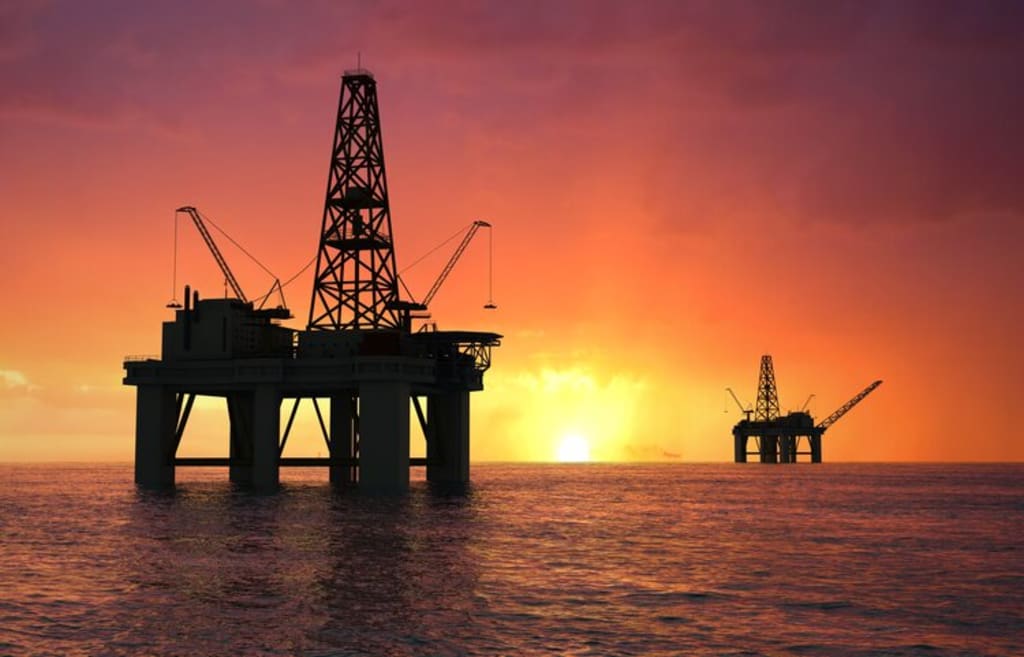Why Qatar's liquefied natural gas expansion may offer short-term environmental gains
Some experts argue that an oversupply of the commodity may hinder energy transition in some countries

Qatar’s decision to increase its liquefied natural gas production capacity may help emerging Asian economies reduce their dependency on coal, resulting in short-term environmental gains, analysts say.
LNG is produced when natural gas is cooled, which shrinks the volume of the gas, making it easier and safer to store and transport over long distances.
The US, Qatar and Australia are the largest exporters of the commodity, considered a low-carbon alternative to crude oil and coal.
Last month, Qatar’s Energy Minister Saad Al Kaabi announced plans to increase capacity by an additional 13 per cent on top of a previously announced expansion. The move aims to raise the nation's LNG output to 142 million tonnes per year by 2030, from its current 77 million tonnes.
“For Asia, Qatar’s announcement is positive for LNG buyers … and helping guarantee a long-term future for LNG in emerging Asia,” intelligence firm Rystad Energy said.
“From a price perspective, Qatari LNG is essentially future-proof with a large low-cost, low-emissions resource base that can prove profitable in any market situation, even under more aggressive energy transition scenarios,” it added.
Price advantage
Qatar's LNG production costs range from $2 to $4 per million metric British thermal units, compared with $3 to $8 per mmbtu in US and $5-$10 per mmbtu in Australia, according to estimates by Rystad, Wood Mackenzie and the Oxford Institute for Energy Studies.
LNG prices in the Asian spot market dipped to their lowest in three years at $8.37 per mmbtu on March 1, down from $8.57 per mmbtu on February 20, according to Rystad Energy.
“There is still some optimisation activity under way in the Asian market with spot LNG prices still slightly above the $8 per mmbtu mark, maintaining at low levels not seen since 2021,” Rystad Energy said.
“LNG players in the market will keep a keen eye on how LNG prices may evolve to optimise spot activity as winter draws to a close.”
Asian spot LNG prices reached a record high of $56 per mmbtu in October 2021, largely due to concerns over winter supply shortages.
Emerging economies in Asia are aiming to increase the share of natural gas to reduce dependency on highly polluting coal amid an expected surge in power demand.
China, the world's biggest coal consumer, is projected to increase the use of natural gas in its primary energy mix to 12 per cent by 2030 from 8.7 per cent in 2020.
India, the second-largest coal consumer, aims to raise the share of natural gas in its total energy mix to 15 per cent by 2030, from about 6 per cent.
An LNG tanker leaves the dock at PetroChina's receiving terminal in Dalian, Liaoning province, China. Reuters
An LNG tanker leaves the dock at PetroChina's receiving terminal in Dalian, Liaoning province, China. Reuters
“[Qatar’s] expansion plan is going to help the emerging economies, it's going to keep the prices balanced,” Karthik Sathyamoorthy, chief executive of Atlantic, Gulf and Pacific LNG told The National.
The Singapore-based company, a subsidiary of US investment and development firm Nebula Energy, plans to develop LNG terminals in South and South-east Asia over the next few years.
The company purchased a 49 per cent stake in Vietnam's Cai Mep LNG terminal last week and aims to make a final investment decision on an import compound in Karaikal, a city on India’s eastern coast, this year.
Mr Satyamoorthy expects LNG markets to be oversupplied starting from 2026 or 2027, much sooner than market predictions of a surplus in 2030.
“That's going to keep the prices more attractive for buyers.”
Countries like Vietnam and India, which heavily rely on coal, may increasingly turn to LNG for power generation as it becomes more affordable, Mr Satyamoorthy said.
A pause on new LNG projects in the US made buyers question whether the market would become tight again. However, that concern was somewhat alleviated by the news of Qatar's additional expansion plans, he added.
Bridge fuel
Doha, which exports most of its LNG to Asia, has for years promoted natural gas as a “bridge fuel” towards net zero.
“This climate play is an overlooked and underappreciated aspect of Qatar climate diplomacy, as many emerging countries … are eager to 'divorce' from coal and establish strategic relations with Qatar,” said Andrea Zanon, chief executive of WeEmpower Capital.
“Qatar will go the extra mile to help subsidise the natural gas cost, and thus reduce consumer price, by offering long-term contracts at special discounts,” Mr Zanon told The National.
However, some experts argue that it may hinder the shift towards renewable energy in the longer term by leading to a “lock-in” of infrastructure and investments related to fossil fuels.
China and India are planning to add about 268 million tonnes and 75 million tonnes in annual LNG import capacity over the next few years, according to Statista.
Although natural gas emits less carbon dioxide and fewer air pollutants compared to coal, methane leakage during extraction, processing, and transportation can offset these environmental benefits, Guy Prince, senior analyst at Carbon Tracker, told The National.
“This is bad news for the planet since methane is a far more potent greenhouse gas than carbon dioxide,” Mr Prince said.
Methane emissions are responsible for 30 per cent of greenhouse gas emissions, however, methane has more than 25 times the effect on climate change than carbon dioxide, according to the United Nations Environment Programme (UNEP).
The International Energy Agency has said that oil and gas companies, whose global income surged to almost $4 trillion in 2022, would need to allocate less than 3 per cent of their profits from that year to achieve a 75 per cent reduction in the industry's methane emissions.
Based on its previous aim of reaching 126 mtpa of LNG production by 2027, state-owned QatarEnergy planned to reduce its methane intensity to 0.2 per cent by 2025.
The company's goal is to achieve zero routine flaring by 2030 and have 90 per cent of its resources derived from gas by that year.
“It's hard to see how an oversupply of fossil fuels to the markets and resulting demand destruction will bring much benefit,” Mr Prince said.
Emerging economies seeking to capitalise on lower prices risk infrastructure and investment lock-in, delaying the transition to renewable energy sources like wind and solar, he said.
LNG pivot
Qatar is not the only country betting big on LNG as prices hover at record lows.
Saudi Aramco, the world’s largest oil-exporting company, is in talks with companies in the US to build its LNG capacity, its chief executive said in a post-earnings call on Monday.
The company plans to increase its gas production by more than 60 per cent by 2030 compared with 2021 levels.
Most of the gas produced by Aramco will be used for power generation and industries within the kingdom, with some being utilised as feedstock for blue hydrogen, Mr Amin Nasser said, adding that LNG capacity would be built mainly through outside markets.
Aramco is currently finalising customer offtake agreements to supply blue hydrogen to customers in Japan and South Korea, he added.
Last year, Aramco announced its first international investment in LNG, following the signing of agreements to acquire a minority stake in MidOcean Energy.
Adnoc, which has signed several long-term LNG agreements over the past few months, is building an LNG plant in Al Ruwais Industrial City in Abu Dhabi.
About the Creator
Andrea Zanon
Andrea Zanon is an international sustainable development and empowerment specialist who has dedicated his life to reducing poverty, promoting sustainability and empowering ambitious people






Comments (1)
“This climate play is an overlooked and underappreciated aspect of Qatar climate diplomacy, as many emerging countries … are eager to 'divorce' from coal and establish strategic relations with Qatar,” said Andrea Zanon, chief executive of WeEmpower Capital. “Qatar will go the extra mile to help subsidise the natural gas cost, and thus reduce consumer price, by offering long-term contracts at special discounts,” Mr Zanon told The National.